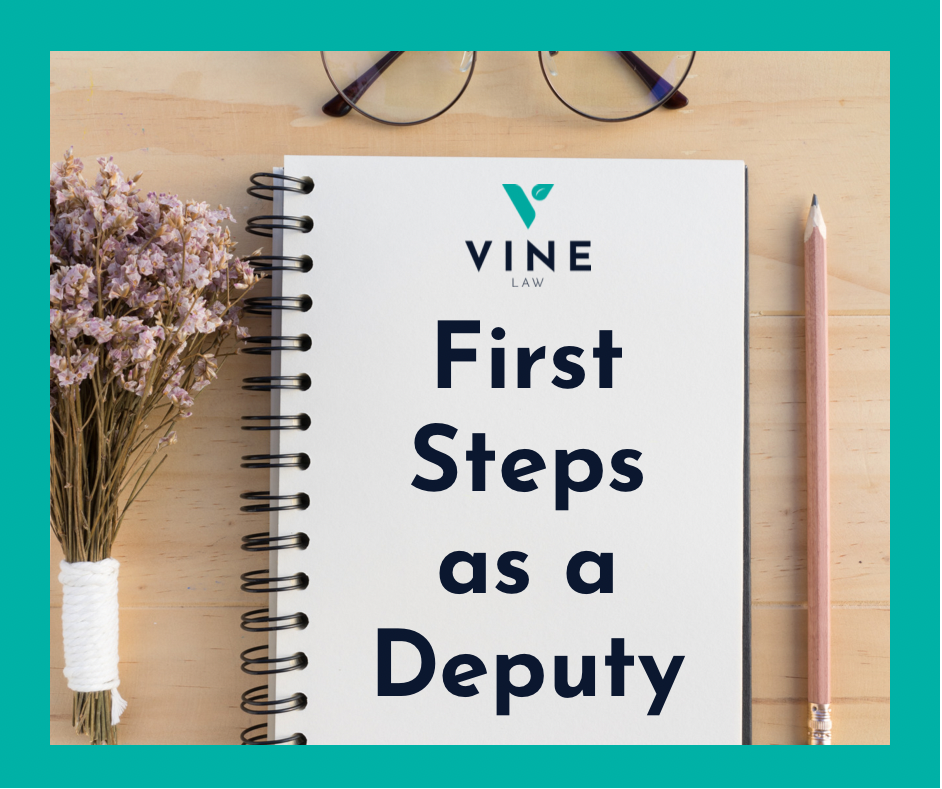You’ve finally got the Deputyship Order – what happens next?
You waited patiently whilst all the information was collated, the application was processed by the Court of Protection and the bond was put in place; now the real work begins.
Read the Order
First you must read the order carefully to ensure you fully understand the extent of your authority as a Deputy. The Court may have placed restrictions on you, and you must act accordingly.
You will be contacted by a case manager at the Office of the Public Guardian (OPG) to arrange a “settling-in” call. Your case manager will discuss with you the terms of the order, the financial position of the person you are looking after and what you can and can’t spend money on. They can’t give you legal or financial advice though.
Letting people know
The next step is to let people know that you have been appointed as a Deputy so you can start to manage the person’s finances. This may include notifying the DWP, banks/building societies/life assurance companies, the local authority, private pension companies and if the person is in care the management of the care or nursing home.
Financial Review
You should review the person’s financial position settling any outstanding bills and cancelling any payments that are no longer required.
If necessary, set up a separate bank account for their finances to ensure that they are kept separate from your own. If you are a Deputy for your spouse you might not want separate accounts and this can be discussed with your case manager at the OPG if you are unsure what’s best.
OPG Fees
There will be OPG fees to pay but these are paid for by the person you are acting for not by you. If that person has a low income or is in receipt of certain benefits you might be able to apply for an exemption or a remission of the fees. If you are granted an exemption there will be no fee to pay and with a remission the fee will be reduced.
If you pay these fees from your own money, you can be repaid from the person’s funds.
The two fees that need to be paid are a one-off deputy assessment fee and yearly supervision fees.
Record Keeping
It is your duty as Deputy to keep accurate financial records. These will be included in the Deputy report that you will be required to submit annually. It will be easier to complete the report if you keep your records up to date.
You’ll need to keep receipts, bank statements and invoices to show what action you have taken with the person’s money. You may be asked to send these to the OPG when they review your report.
If you give the person a personal allowance or pocket money you will not be asked to show how they have spent this just that they have had the money.
If you have received professional advice or have asked for guidance from the family of the person about their finances keep a note of this as you will need to put it in the report.
You will be asked to submit the report online.
The role of the OPG
The OPG has to make sure that the person’s money is being used in their best interest.
They will send you a reminder to submit your report.
If you don’t submit the report or there are concerns about any actions you have taken as a deputy your position will be reviewed. You can be removed as a deputy if you do not act properly.
Help and Guidance for you as Deputy
Information and advice can be found at www.gov.uk/government/publications/deputy-guidance-how-to-carry-out-your-duties/sd3-how-to-be-a-property-and-affairs-deputy-web-version but if you would like advice about how you should act in specific situations then we would be able to help.




